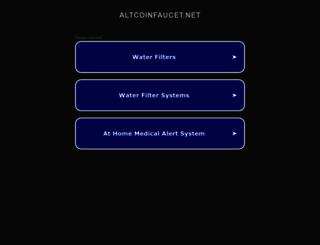Fatxplorer Serial Mom

Apr 13, 1994 Ever momentarily had an urge to kill someone when they stole a parking spot from you, badmouthed a member of your family, or committed an obvious fashion violation? We don't act on it (well, *I* don't anyway, maybe some of you have and I just don't know about it) but Serial Mom sure does.
This is my first John Waters film and I think I've got a good handle on his style of filmmaking. He's a sort of campy, joyful and irreverent filmmaker. He's not too much of a serious artist -- at least not from what I can tell here -- but he's a heck of an entertainer. He is, well, a master of schlock.

He's nowhere near as creative as the Coen brothers and not as uproariously funny as the Farrelly brothers, but we're almost in a state of awe watching the movie, smiling, but wondering if we should be when an overly-sweet, caring mother beats a woman to death with a leg of lamb. Thing is, it never seems bad -- it's not even morally reprehensible the way Waters shows it. It's like when you've just watched a gag in extremely poor taste done pleasantly with such giddy amusement that you just shake your head and say, 'That is just wrong!' Kathleen Turner plays the mother who, underneath her thin veil of perfect mother normalcy, has a latent desire to murder those who offend her sensibilities. Sam Waterston plays her husband, a good-natured dentist who stands by his wife as long as he can.
It's an interesting pairing of Sam Waterston and Kathleen Turner, two actors blessed with raspy, gasping voices. Ricki Lake and Matthew Lillard play the two's children. Lake, the daughter in search of a boyfriend, is the first to suspect her mother's dark side and Lillard, the son with a love for classic gore horror movies, is interested when he's told his mother may be a killer.
It's sort of like a David Lynch movie, if you were to focus only on the 'gee whiz' part of America and replace all of Lynch's darkness with campy situations, like a punk rock band called Camel Lips. A lot of the dialogue and the satirical jabs were pretty obvious, but I wasn't quite sure whether this was just unsubtle comedy or if the joke was in how obvious some of the stuff was ('I made a killing!). The acting by Turner reminded me of Annette Bening's in 'American Beauty,' but demented instead of one-note. All the leads are fine, but the big chuckles come from the supporting players like Mink Stole as poor Dottie Hinkle, the victim of a crank caller. Or Patricia Hearst, as a juror who's not in tune with what Turner sees as a fashion faux pas. I had a big smile plastered on my face for about the first half-hour, which is the best part of the movie, and while the last half-hour loses some steam, it's still a joy to watch Turner and especially Mink Stole.
It's not really a criticism, though -- most movies start with a great premise and have trouble resolving it. It's not so much that there's no satisfying resolution, it's that some of the more shocking moments come in the beginning and middle of the film. The best way I can think to describe the movie is that it exists in a realistic place populated by unrealistic characters. It's a satirical, farcical black comedy that, despite its gruesome murders, is perpetually cheery and without a trace of mean-spiritedness.  (Any modern movie that still uses wipes for editing.) With no pun intended (well, maybe some), it's a movie definition of 'queer.' I think I'll have to go look for 'Cry-Baby' and 'Hairspray' now.
(Any modern movie that still uses wipes for editing.) With no pun intended (well, maybe some), it's a movie definition of 'queer.' I think I'll have to go look for 'Cry-Baby' and 'Hairspray' now.